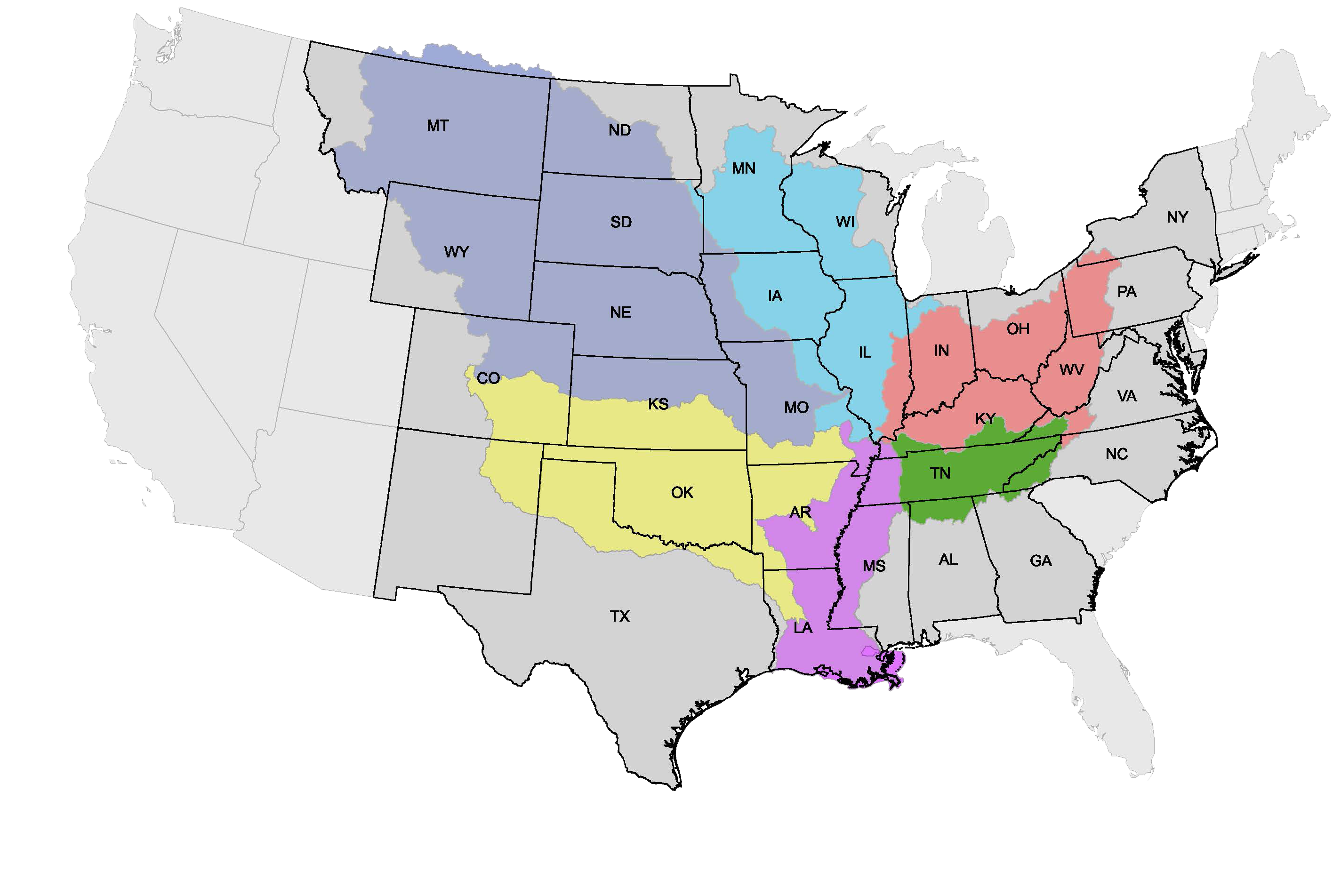MICRA’s Mission is to improve the conservation, management, development and utilization of interjurisdictional fishery resources (both recreational and commercial) in the Mississippi River Basin through improved coordination and communication among the responsible management entities.
- The Mississippi River and its tributaries are one of the most valued ecosystems in the world
- The basin is the fourth largest watershed in the world and the largest in the Nation
- The watershed drains all or part of 31 states and 2 Canadian provinces
- The basin covers 1.2 million square miles or approximately 41% of the continental U.S.
- The basin’s thousands of small streams are home to hundreds of fish species and many other important forms of aquatic life
- There are more than 90 tributary rivers and fish species within the Mississippi River Basin that come under the management of two or more governmental entities and are considered “interjurisdictional” resources
- Recreational fishing in the basin has an estimated $26 billion annual economic output (American Sportfishing Association 2023)
The Mississippi River and many of its larger tributaries are defined as “interjurisdictional rivers” meaning that they flow between, or are common to, two or more state boundaries, or that flow between two or more land management jurisdictions. Similarly, “interjurisdictional fisheries” are those fishery resources that cross or are common to two or more state boundaries and come under the shared jurisdiction of two or more governmental entities. Example: paddlefish, sturgeon, and catfish.



Fish species that move between management jurisdictions create complex management problems related to regulations, licensing, enforcement, and management objectives. The MICRA member agencies formally agreed in 1990 to work together for the development of cooperative fisheries research and cooperative fisheries management programs to assess the Mississippi River Basin fishery resources and habitat requirements to protect, maintain, and enhance interjurisdictional fisheries in the basin. MICRA functions as an umbrella organization that provides basinwide coordination and communication among multi-state compacts and partnerships that address interjurisdictional fishery management issues within six Mississippi River sub-basins: Upper Mississippi, Lower Mississippi, Ohio, Tennessee-Cumberland, Missouri, and Arkansas-Red-White.




